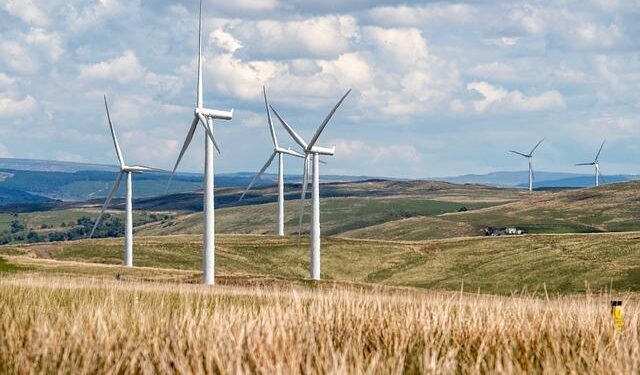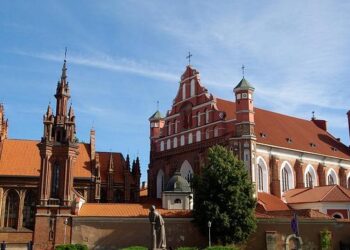In a notable move towards bolstering the European Union’s commitment too enduring energy solutions, the EU has announced a landmark investment of Ōé¼436 million aimed at advancing renewable hydrogen projects in Austria and Lithuania. This strategic funding initiative is designed to enhance the production and use of green hydrogenŌĆöan energy source that promises to play a crucial role in the continent’s transition to a low-carbon economy. As global energy demands evolve and the urgency to reduce greenhouse gas emissions intensifies, this investment not only underscores the EU’s leadership in clean technology innovation but also reflects a broader ambition to foster energy independence and sustainability across member states. In this article, we will delve into the details of the funding allocation, the expected impacts on local economies, and the overarching importance of hydrogen as a pillar of future energy strategies.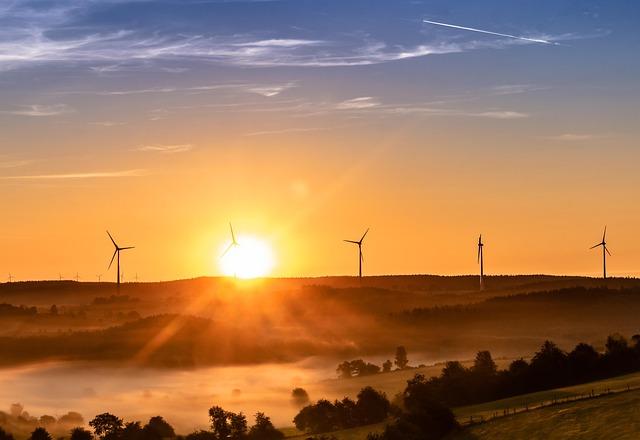
EUs Strategic Investment in Renewable Hydrogen: A Boost for Austria and Lithuania
The recent allocation of Ōé¼436 million by the EU to enhance the renewable hydrogen sectors in Austria and Lithuania marks a significant step towards a sustainable energy future.This investment is not just a financial boost; it represents a commitment to fostering innovation and creating green jobs in both nations. By channeling resources into cutting-edge hydrogen technologies, austria and Lithuania are poised to become leaders in the emerging renewable hydrogen market. The funding will enable the execution of large-scale production facilities, distribution networks, and advanced research initiatives that aim to harness the potential of hydrogen as a clean energy source.
This initiative is part of a broader strategy to reduce the EU’s reliance on fossil fuels and meet climate targets set for the next decade. With this funding, both countries will work towards implementing systems that utilize renewable energy sources, such as solar and wind, to produce green hydrogen. The expected outcomes include:
- Enhanced energy security by diversifying energy sources.
- Reduction in greenhouse gas emissions aligning with EU climate action goals.
- Innovation in technology driving economic growth and job creation.
The strategic investment will not only benefit local economies but will also contribute to the EU’s overarching goal of advancing towards a hydrogen economy that prioritizes sustainability. by setting up infrastructure and fostering partnerships between public and private sectors, Austria and lithuania can serve as models for others in the region striving to transition to renewable energy sources.
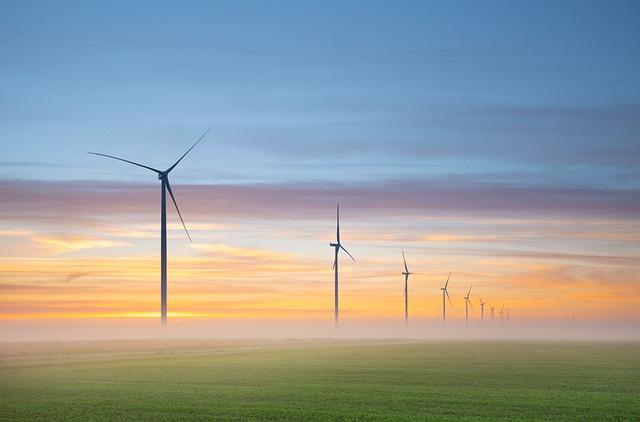
Unpacking the Financial Commitment: Ōé¼436 Million for Sustainable Energy Initiatives
The recent allocation of Ōé¼436 million marks a significant step in the European Union’s commitment to advancing sustainable energy initiatives, notably focusing on renewable hydrogen projects in Austria and Lithuania. This funding is part of a broader strategy to transition towards greener energy solutions, reduce carbon emissions, and enhance energy security across the region. By fostering innovation in renewable hydrogen technologies, the EU aims to not only support economic growth but also to lead in the global shift away from fossil fuels.
Key areas of investment include:
- Research and Development: Funding will enhance R&D in innovative hydrogen production methods.
- Infrastructure Development: Establishing necessary infrastructure for hydrogen production and distribution in both nations.
- Collaboration Initiatives: encouraging partnerships between academic institutions and industry players to accelerate technological advancements.
| Country | Project Focus | Funding Amount (Ōé¼) |
|---|---|---|
| Austria | Innovative Hydrogen production | 218 million |
| Lithuania | Hydrogen Infrastructure Development | 218 million |
This investment not only reinforces the EU’s green energy targets for 2030 and beyond, but it also signifies a commitment to fostering technological innovation and reducing dependency on non-renewable energy sources throughout Europe.
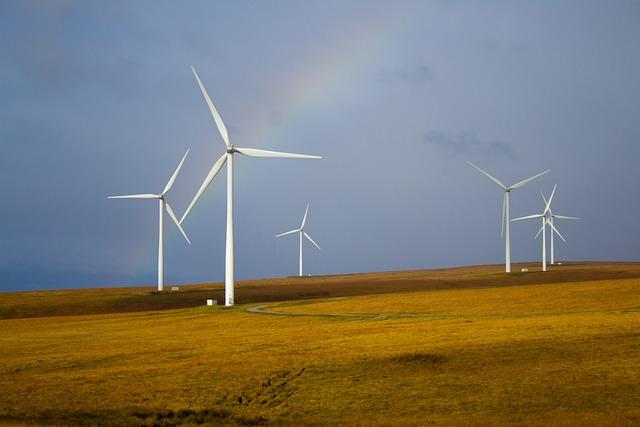
Innovative Projects: How Austria and Lithuania Plan to Harness Renewable Hydrogen
The recent investment of Ōé¼436 million by the EU marks a significant commitment towards enhancing the renewable hydrogen capabilities of Austria and Lithuania. Both countries aim to establish themselves as front-runners in the green energy sector,focusing on the generation,storage,and distribution of hydrogen derived from renewable sources. This initiative emphasizes a collaborative approach, leveraging the unique strengths of each nation, which include:
- Austrian Expertise: Austria’s advanced research institutions and technology firms are set to contribute groundbreaking innovations in hydrogen production technologies.
- Lithuanian Infrastructure: Lithuania’s strategic location and existing energy networks provide an excellent framework for scaling hydrogen distribution across the Baltic region.
The deployment of thes technologies will not only support local economies but will also play a crucial role in meeting EU climate objectives. By optimizing the production processes and enhancing efficiency, both countries are working towards a zero-emission energy future. A vital aspect of this initiative is the creation of a supportive regulatory habitat, which will help facilitate the following:
- Investment Incentives: Attracting private sector funding to drive innovation in hydrogen technologies.
- Research Collaboration: Establishing forums for knowledge exchange among scientists, engineers, and policymakers.
| Country | Focus Areas |
|---|---|
| Austria | R&D in hydrogen production technology |
| Lithuania | development of distribution networks |

the Role of Renewable Hydrogen in Achieving EU Climate Goals
The European Union’s investment of Ōé¼436 million in the development of renewable hydrogen in Austria and Lithuania signals a strategic commitment to harnessing clean energy sources. Renewable hydrogen, produced using green technologies such as electrolysis powered by renewable energy sources, has emerged as a pivotal element in the EU’s transition to a decarbonized economy. this innovative fuel can help reduce greenhouse gas emissions, decrease dependency on fossil fuels, and enhance energy security across member states. By establishing a robust hydrogen economy, the EU aims to create synergies across multiple sectors, including transportation, heating, and industrial processes, thereby maximizing the environmental benefits.
To realize these enterprising objectives, investments will be directed towards several key areas:
- Infrastructure Development: Establishing hydrogen production facilities and storage solutions.
- Research and Innovation: Encouraging technological advancements to improve efficiency and reduce costs associated with hydrogen production.
- Partnerships: Fostering collaboration between public and private entities to drive the renewable hydrogen agenda.
This strategic investment underscores the EU’s recognition of renewable hydrogen as a versatile energy carrier that can facilitate the decarbonization of hard-to-abate sectors. As countries like Austria and Lithuania spearhead these initiatives, they not only contribute to national climate goals but also bolster the collective ambitions of the European Union in achieving its climate neutrality targets by 2050.

Recommendations for Maximizing the Impact of Funding on Local Economies
To ensure that the significant investment in renewable hydrogen yields ample benefits for local economies, stakeholders should focus on collaboration among key players. This includes establishing partnerships between government bodies, research institutions, and private enterprises. By fostering an environment of shared knowledge and resources, regions that host renewable hydrogen projects can create a robust ecosystem that benefits job creation and local innovation. Engaging the community in these initiatives is essential, as it promotes local buy-in and encourages residents to participate in the transition to greener energy sources.
Moreover, careful consideration should be given to the implementation strategies of these funds. Prioritizing areas such as infrastructure development, workforce training, and sustainable supply chains can greatly enhance the economic footprint of hydrogen projects. The table below outlines potential focus areas and their respective impacts on local economies:
| Focus Area | Potential Economic Impact |
|---|---|
| Infrastructure Development | Enhances logistics, reduces costs |
| Workforce Training | Creates skilled jobs, increases employment rates |
| Sustainable supply Chains | Boosts local businesses, reduces carbon footprint |

Future Prospects: The Potential of Renewable Hydrogen in European Energy Security
The potential of renewable hydrogen as a cornerstone of european energy security is becoming increasingly evident with significant investments aimed at driving innovation and infrastructure. With Ōé¼436 million allocated to projects in Austria and Lithuania, the EU is strategically positioning itself to enhance energy independence and sustainability. This funding aims to foster collaborations that will leverage local resources, technological advancements, and create a robust supply chain for hydrogen production. The investments align with broader European goals to achieve climate neutrality and reduce dependency on fossil fuels by utilizing green hydrogen derived from renewable sources.
As the development of hydrogen technologies progresses, several key areas are set to benefit from these investments:
- Job Creation: New projects will likely spur employment opportunities across the renewable energy sector.
- Technological Innovation: Investment will stimulate advancements in electrolysis and hydrogen storage technologies.
- Regional Cooperation: The collaboration between Austria and Lithuania could serve as a model for other EU nations.
- Infrastructure Development: Enhancing the necessary infrastructure for hydrogen transport and distribution is pivotal.
To visualize the expected impact, the table below outlines anticipated project outcomes over the next five years:
| Year | Expected Outcomes | Funding Allocation (Ōé¼) |
|---|---|---|
| 2024 | Initiation of pilot projects | 100 million |
| 2025 | Production of green hydrogen hubs | 150 million |
| 2026 | Research & Development enhancements | 86 million |
| 2027 | Infrastructure upgrades | 100 million |
These outcomes are not just numbers; they represent steps toward creating a self-sufficient energy landscape in Europe. As the EU commits to innovative energy solutions, the spotlight increasingly shines on renewable hydrogen as a pivotal player in securing a sustainable and resilient energy future.
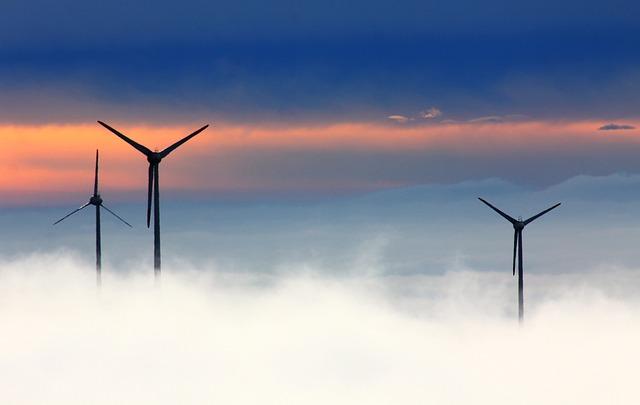
Insights and Conclusions
the European Union’s significant investment of Ōé¼436 million in renewable hydrogen initiatives in Austria and Lithuania marks a pivotal step towards increasing green energy production and enhancing energy security across the continent. This financing not only underscores the EU’s commitment to sustainable development and climate action but also highlights the potential for innovation in hydrogen technology. As both nations embark on this ambitious journey, the collaboration presents an opportunity for industrial growth, job creation, and a sustainable future. The success of these projects could serve as a model for other member states, reinforcing the EU’s position as a leader in the global transition to clean energy. As developments unfold, stakeholders will be closely monitoring the progress and impacts of this investment, which could very well shape the trajectory of EuropeŌĆÖs energy landscape in the coming years.


